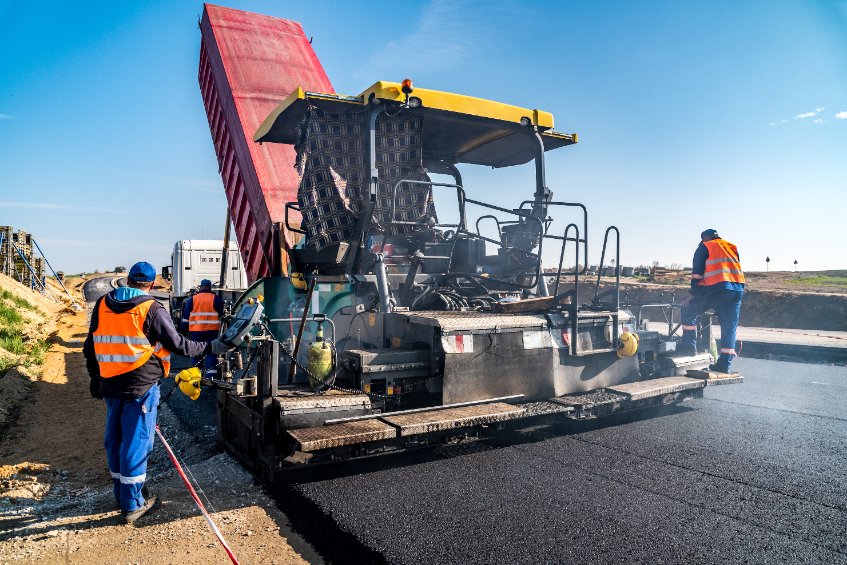
Asphalt is the only pavement that is everlasting. It can be used and reused again, making it a wise choice for any location or project. There is a whole website dedicated to sharing facts about asphalt, and we thought we’d share some with you here:
A smooth asphalt pavement isn’t just for looks. Smooth pavements can extend its lifespan by up to 25%. It also provides more traction for tires because it maximizes contact between the tire and the pavement. Fuel consumption is better on a smooth asphalt pavement, and it reduces wear and tear on vehicles. Have you noticed on concrete highways that you can hear the ka-thunk, ka-thunk as you drive over all the lines? Then notice how you don’t hear that when you’re driving on asphalt. Asphalt’s smooth surface eliminates that noise and reduces highway noise by about 3 decibels.
Asphalt is a budget-friendly choice, but that’s not because it’s an inferior product. Because much of asphalt is recycled, American taxpayers save an estimated $2 billion each year. The asphalt industry is the number one recycler in the United States, and asphalt is one of the best renewable resources. Asphalt’s return on investment is the best out of any paving material, and studies have shown that asphalt is generally more economical than concrete. When asphalt pavement is reclaimed, the asphalt cement and stone are just as valuable as brand-new materials. The asphalt roads in the United States have a value estimated at over $2 trillion, and about 94% of all roads in the country are paved with asphalt.
Asphalt requires less energy to produce, it’s recyclable, and it generates less waste than other paving materials. The asphalt binder used in pavements is an unburned byproduct of fossil fuels, which means the CO2 never gets released into the air. The Environmental Protection Agency states, “99.6 percent of the carbon in asphalt binder is stored instead of contributing to greenhouse gases.” Asphalt is also a little porous, so it aids in the filtration of water to keep pollutants out of the environment. And full-depth asphalt is made in such a way that water can drain through the pavement into a stone recharge bed and trickle down into the soil below the surface. This replenishes water tables and helps to keep water where it needs to be rather than sending it all to storm sewers.
Asphalt is built to last, and often asphalt projects can be repaired rather than fully replaced. Resurfacing brings new life to a road making it smooth and durable. With proper application and maintenance, asphalt pavements can last decades. And, because the top layer of asphalt can be replaced, it’s often called the perpetual pavement, able to be used repeatedly. Of course, water, sun and weather exposure, and wear and tear can affect the durability of an asphalt pavement, but with a professional install followed by a good attention to maintenance needs, you won’t need to worry too much about those factors.